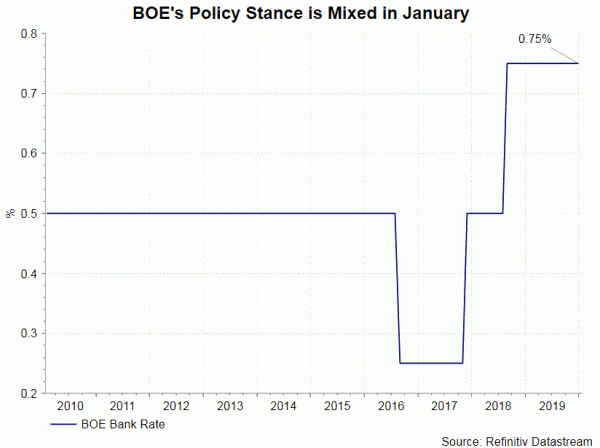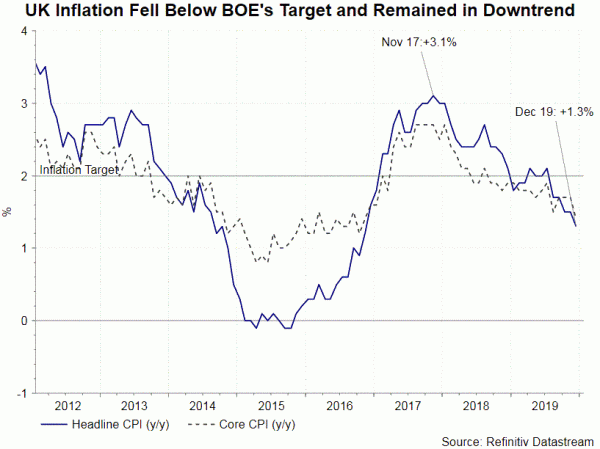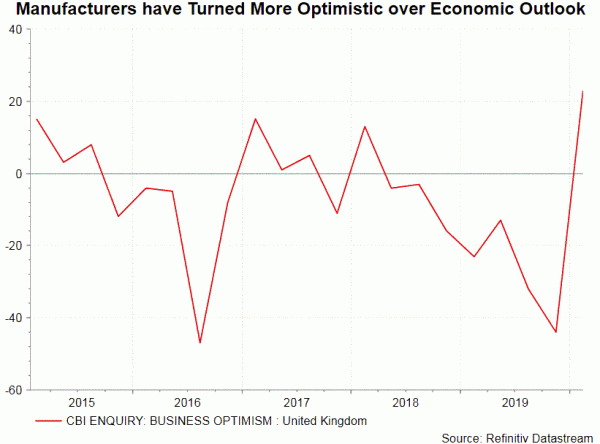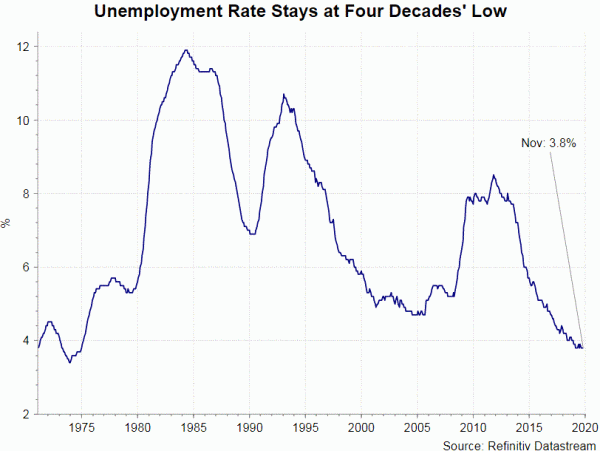The market is mixed regarding whether BOE will lower the Bank rate at the upcoming meeting. Now the dust has settled for Brexit, the focus is turned to BOE’s monetary policy decision. Weakening in inflation suggests that a rate cut might be appropriate. Meanwhile, a cut in governor Mark Carney’s last meeting could make the job easier for his successor. On the other hand, resilient job market, positive PMI and market optimism have given policymakers more flexibility. BOE should sound more dovish at the January meeting no matter it decides to cut or not.
 Inflation continued to moderate. Headline CPI eased to +1.3% y/y in December, compared consensus of, and November’s, +1.5%. Core inflation fell to +1.4% y/y, compared consensus of, and November’s, +1.7%. Slowing inflation would be key reason for MPC members who are in favor of a rate cut.
Inflation continued to moderate. Headline CPI eased to +1.3% y/y in December, compared consensus of, and November’s, +1.5%. Core inflation fell to +1.4% y/y, compared consensus of, and November’s, +1.7%. Slowing inflation would be key reason for MPC members who are in favor of a rate cut.

 Employment situation remained strong. The number of payrolls soared +208K in the 3 months through to November, beating consensus of +110K addition and +24K in the previous 3 months. The unemployment rate steadied at +3.8%. Flash PMI readings surprised to the upside in January. The composite reading rose to 52.4, compared with consensus of 50.6 and 49.3 in December. The services sector gained +2.9 points to 52.9, while the manufacturing sector added +2.3 points to 49.8. Meanwhile the latest CBI report revealed that manufacturers have turned more optimistic about the outlook. the sentiment index rose to +23 in January from -44 in October.
Employment situation remained strong. The number of payrolls soared +208K in the 3 months through to November, beating consensus of +110K addition and +24K in the previous 3 months. The unemployment rate steadied at +3.8%. Flash PMI readings surprised to the upside in January. The composite reading rose to 52.4, compared with consensus of 50.6 and 49.3 in December. The services sector gained +2.9 points to 52.9, while the manufacturing sector added +2.3 points to 49.8. Meanwhile the latest CBI report revealed that manufacturers have turned more optimistic about the outlook. the sentiment index rose to +23 in January from -44 in October.
The market trimmed bets that BOE would cut the Bank rate at the upcoming meeting to 50% last Friday, from 70% earlier in the week. The change was mainly by the upbeat economic data released during the week. That said, we expect BOE to deliver a dovish message, opening the door for policy easing in coming months.

